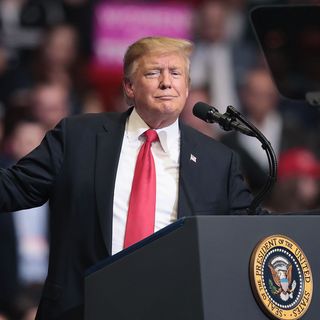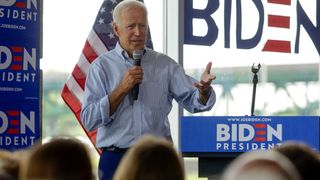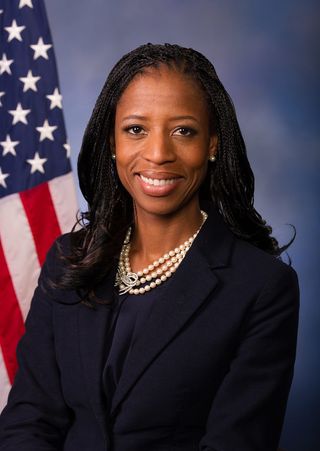With Democratic frontrunner Joe Biden’s announcement reversing his position on taxpayer-funded abortions, moderate voters in the US are left with few centre-Left alternatives to Donald Trump. While Biden’s change of heart played well to primary voters, it may have less appeal among the swing-state voters who determine the outcome of presidential races. Will swing voters be willing to exchange America’s strong economy, healthy wage growth and historic low unemployment under President Trump for a series of expansive government programs that require staggering tax increases on the middle class?
If not, then the current field of Democratic candidates has little to offer centrist voters. In fact, what plays well to primary voters may actually alienate general election voters. Among primary voters, a Politico/ Morning Consult poll showed 32 per cent were more likely to support Biden now that his position on abortion matches the rest of the primary field. But among the general electorate, 49 per cent support restricting taxpayer funding for abortions. Polling data indicates Americans are increasingly uncomfortable with the late-term abortions championed by the major 2020 challengers.
A January 2019 Marist poll found 75 per cent of Americans favour substantial restrictions on abortion, including 60 per cent of Democrats who say they favour limiting abortion to the first trimester. The 2020 field of candidates represent a hard-left turn for America’s political system. Positions considered extreme just a few years ago have become Democratic orthodoxy for 2020. Can an ambitious agenda of massive tax increases appeal to a broader electorate? Bernie Sanders has authored a Medicare-for-All program that would eliminate the country’s $US600 billion private health insurance industry, including hundreds of thousands of jobs. Presidential hopefuls Kamala Harris, Kristen Gillibrand and Cory Booker are co-sponsors.
Presidential focus bad for both sides of politics

The program’s costs are being downplayed in the primary, but could get a lot more attention in a general election. Sanders estimates the cost of his Medicare-for-All program at $US1.38 trillion a year. Even if that lowball estimate is correct, $US1.38 trillion on top of a $US4.1 trillion Budget is significant. The US collected only $US3.3 trillion in revenue in 2018. Furthermore, the libertarian Mercatus Institute estimates the program’s cost will be much higher: $US32.6 trillion over a decade. Meanwhile, every candidate (save for Hawaii’s Tulsi Gabbard) has jumped on board some version of a Green New Deal plan. The version sponsored by New York Congresswoman Alexandra Ocasio-Cortez is estimated to cost up to $US93 trillion over 10 years, according toformer Congressional
Budget Office director Douglas Holtz-Eakin. That equates to $600,000 per household. The new programs don’t end there. Many of the first-tier candidates have offered some sort of plan to make college free. Massachusetts Senator Elizabeth Warren estimates her plan will cost $US1.2 trillion over 10 years. “Free college” sounds appealing but what happens in a general election when Trump points out to non-college-educated Democratic swing voters in middle America that they will be the ones paying for high-income families to send their kids to college? Each state would also lose big under such a plan.
Tuition is a big part of how states fund higher education. The sympathetic Campaign for Free College Tuition estimates California alone would lose almost $US5 billion in tuition revenue in the first year. On the controversial issue of immigration, every candidate supports a path to citizenship for those who have already crossed into the country illegally. Many support offering free health care coverage to immigrants, including frontrunners Harris, Warren, Sanders, and Buttigieg. These are policies that are widely perceived to prioritise and incentivise illegal migration instead of doing what many Americans believe is more effective — fix the legal system. The positions being touted almost uniformly by the frontrunners in the 2020 Democratic primary are not mainstream positions. They make Donald Trump look mainstream. And they may ultimately be the key to his re-election.






